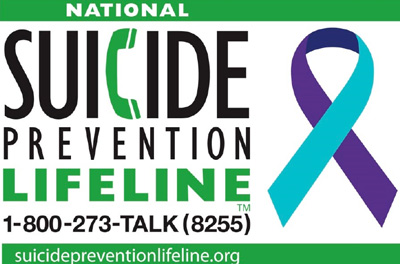 Upcoming Events Upcoming Events
|

Trace Investigations team members will be at the annual conference of the National Association of Legal Investigators in June. Featured seminar topics include digital forensics, social media discovery, and mitigating false confidence in witnesses. For complete conference details, see
www.NALI.com.
|
"Some cases are always equivocal."
The late Michael A. Clark, Ph.D., M.D., Professor of Pathology, Indiana University Department of Pathology, in a 2010 lecture in Indianapolis.
|
|
|
We are grateful to have the opportunity to provide you this valuable information. We take special care to ensure the information we provide you in "Tracings" is the latest and most current information available.
In this edition, we address the suicide phenomenon, and how a legal investigation can eliminate doubt in a suspicious suicide.
The goal of this e-newsletter is to provide you with critical information that will help you prevail in your business affairs wherever fact finding is an essential component. We will share what we have learned in our 30+ years as professional investigators and intelligence analysts.
We want to write about topics that will assist you in succeeding in your business endeavors. Please e-mail us your topics of interest to
[email protected].
We encourage you to share our e-newsletter with others in your sphere of influence.
Sincerely,
The Trace Team
|
 Suicide is in the news lately, and it is more likely to make the national news when the decedent is a famous person or noted celebrity. As I write this, in the past week we have seen two such stories; the death of fashion designer Kate Spade and the celebrity chef Anthony Bourdain. Suicide should be part of our national dialogue at all times, and beyond the mental health circles and their trade publications, or the occasional newspaper or magazine article that focuses on the phenomenon and not the victim. Awareness breeds alertness. If we are more familiar with a subject, we are more likely to be prepared to address it when we witness its looming presence.
Suicide is in the news lately, and it is more likely to make the national news when the decedent is a famous person or noted celebrity. As I write this, in the past week we have seen two such stories; the death of fashion designer Kate Spade and the celebrity chef Anthony Bourdain. Suicide should be part of our national dialogue at all times, and beyond the mental health circles and their trade publications, or the occasional newspaper or magazine article that focuses on the phenomenon and not the victim. Awareness breeds alertness. If we are more familiar with a subject, we are more likely to be prepared to address it when we witness its looming presence.
My firsthand exposure to suicide was in my role as a legal investigator, when in the early 1990s I was tasked with investigating a suspicious suicide determination made by an Indiana coroner in a nearby county. An insurance company had denied death benefits to the parents of the decedent, based on a suicide exemption clause in the life insurance policy the parents held on their son, who at the time of his death was in his early 20s. The parents had alleged foul play involving their son's estranged wife. The couple had a volatile relationship. My preliminary research was focused on determining the elements of law required to support a determination of suicide made at a death scene or subsequently by an investigating authority, because a death certificate is not prima facie evidence of suicide, or any other determination of the manner of death.
My investigation was successful, in that I uncovered sufficient evidence to cast doubt on a suicide. I was unable to rule out an accidental death or a death by foul play. In the end, because of what the investigation uncovered, the insurance company withdrew its denial of benefits. However, the family was unable to get the local sheriff's department or prosecutor to pursue the case to another conclusion, and our investigation came to an end. I featured this case in a white paper I wrote in 1997, "Suicide Investigations," for the quarterly journal, The Legal Investigator, published by the
National Association of Legal Investigators. I expanded my research in a subsequent article I wrote for a reference book,
"Suicide Determination in an Equivocal Death Investigation," published by Lawyers and Judges Publishing Company in 2000. In that article, I go into detail on the four elements under law necessary to support a determination of suicide, as my research revealed at the time, and I quote here:
|
|
|